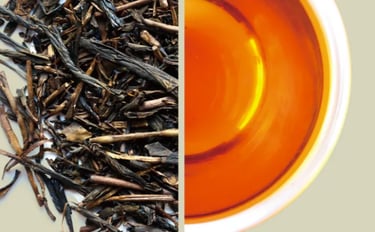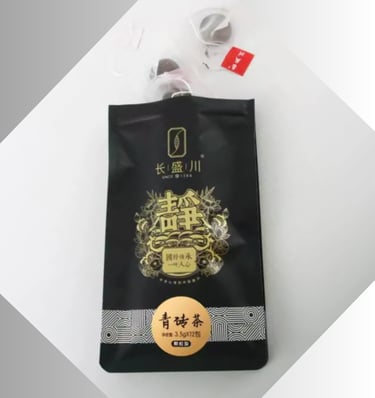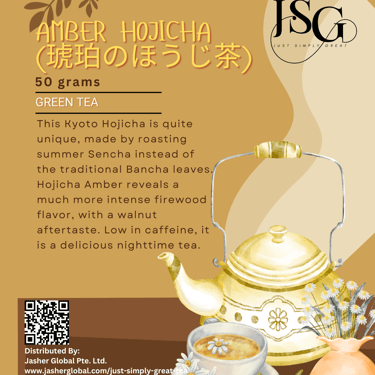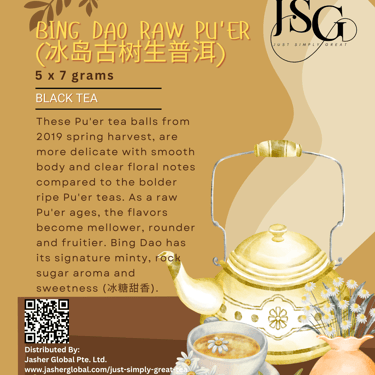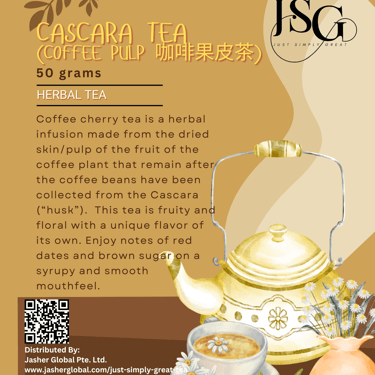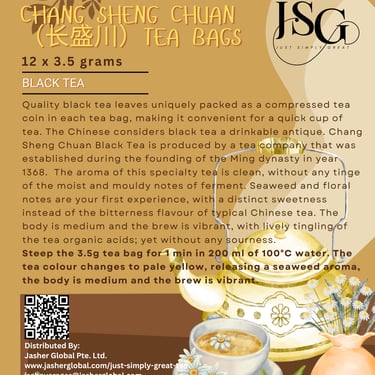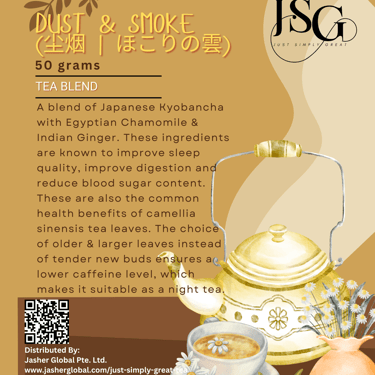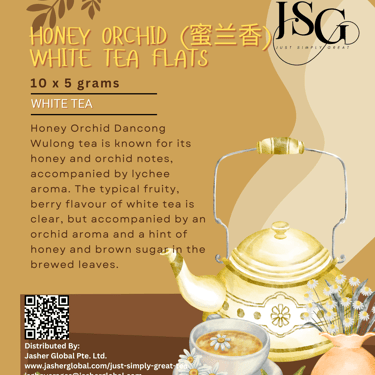Sustainable Tea
JSG’s focus in enhancing sustainable living is reinforced in all our product offerings. Our Tea supplier sources tea widely and boldly, and curate a list of offerings from different tea countries and regions. The teas are usually from historical areas, made by highly accomplished craftsmen and masters. Our Tea Supplier personally visit their farms, factories and the land that grows the tea, witnessing the tea craftsmen's techniques and efforts. Inspired by their stories, our tea range is specially selected.
Opt for JSG’s specialty tea to support ethical tea farmers in continuing their trade through the generations to come!
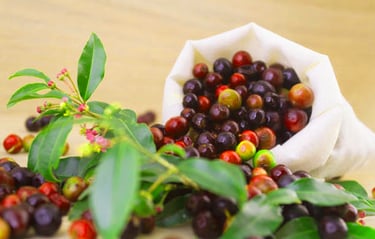

Cascara Tea 咖啡果皮茶
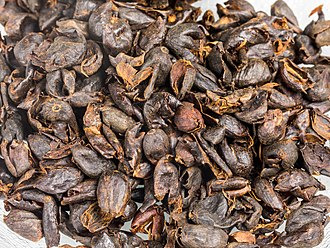

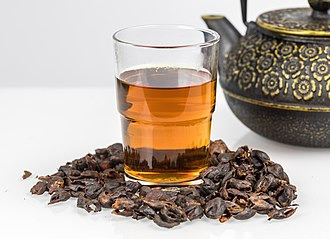

Typically, coffee cherries are considered a by-product of the coffee-making process and are either discarded as waste or used as compost. The beauty of this whole process is that it allows for the coffee plant to be used in a creative way while being sustainable. From cascara sales, it can create an additional sustainable stream of income for the farmers, contributing to sustainable farming.
Brew the cascara like a tea in a Chinese gaiwan, at 2 grams to 150ml at 95°C for 90 sec. You can also brew it western style in a teapot using the same parameters and start pouring out the drink from the 90th sec.
Coffee cherry tea is an herbal tea made from the dried skins and/or pulp of the fruit of the coffee plant that remain after the coffee beans have been collected from within. It is also known as cascara, from the Spanish cáscara, meaning "husk". It is believed that cáscara tea was consumed in Yemen even before the form of coffee we know today. The tea is described as fruity and floral; the fruits are not dissimilar to other dried fruits such as apricots, cranberries, and raisins. The sweet tea-like flavour of this drink subsequently brought it to Central and South Americas.
Tea Blend: Dust & Smoke
Our tea blends are specially crafted by our award-winning Tea Master, to make quality and historical tea palatable and attractive for more people to appreciate. What differentiate our tea blends are notably:
1. Creative blending to highlight the flavours of the featured tea.
2. No essential oils or colouring are used for blending.
3. All flavors are natural and ingredients used are in their original shapes and colour.
4. Same teas in our Tea Supplier’s curated list are used for blending, we do not import lower grade teas for the sole purpose of blending.
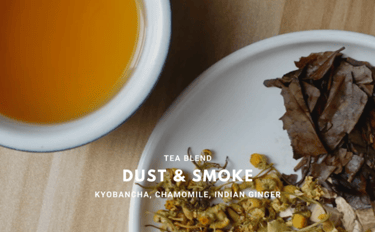

Our featured DUST & SMOKE (尘烟 | ほこりの雲) is the result of blending Japanese Kyobancha with Egyptian Chamomile and Indian Ginger. The blending ingredients are known to improve sleep quality, improve digestion and reduce blood sugar content. These are also the common health benefits of camellia sinensis tea leaves. The choice of older and larger leaves instead of tender new buds ensures a lower caffeine level, which makes it suitable as a night tea.
Brew in a teapot, with 3 grams tea to 150ml water at 85°C for 1 minute.
White Tea
Honey Orchid (蜜兰香) is the most famous of all Phoenix Mountain dancong (单丛) cultivars. Dancong teas are descendants of field selected single stock wild varieties with distinct characteristics. Honey Orchid Dancong wulong tea is known for its honey and orchid notes, accompanied by lychee aroma. Since the last years of the Southern Song dynasty, with 900 years of history, the Chaozhou region east of Guangdong province neighbouring Fujian province is famous for Dancong made into Oolong tea. Guangdong province does not produce white tea. Our tea master has experimented and successfully developed the Honey Orchid white tea, cut into square biscuits of 5 grams each. To manage the vegetal character resulting from the white tea process, the tea biscuit undergoes additional roasting followed by resting to reduce roastiness, before pressing into squares.
Brew the entire tea biscuit in a Chinese gaiwan, filling 90°C distilled water to 150 ml, and letting it brew for 1 min. The tea is compact and needs fives brews before it fully opens up, with the flavours coming together from the third brew onwards. The brew colour is light cinnamon.
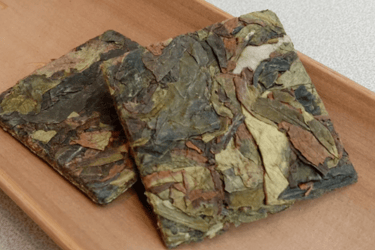

The Bing Dao region is generally 1,700 m with stable and cool temperature of 20°C throughout the year with high rainfall, and a good amount of ancient trees above 300 years old, thus producing a tea that has strength and energy, termed as Cha Qi (茶气). In 2018, one kilogram of Bing Dao (冰岛) unsorted tea from young trees were selling at SGD 600, one kilogram of Bing Dao unsorted tea from older trees of at least 50 years old were selling at SGD 1,400 and one kilogram of Bing Dao unsorted tea from ancient trees (usually 100 years) were selling at SGD 8,000. Such prices would have matched the prices of royal tribute teas of all times. These Pu'er (普洱) tea balls are from 2019 spring harvest and each ball is about 7g. Compressed into "balls" good for continuous brewing, this raw Pu'er is more delicate with smooth body and clear floral notes compared to the bolder ripe Pu'er teas. As a raw Pu'er ages, the flavours becomes mellower and rounder, sometimes fruitier. Good for enjoyment after years of aging, it could be further aged to develop its character. Bing Dao has its signature minty, rock sugar aroma and sweetness (冰糖甜香). Xi Gui shares the rock sugar aroma alongside magnolia aroma.
Immerse the entire ball in a teapot to brew with 120ml of 95°C distilled water, pouring out the teas within 15 sec each time. The flavours and sweetness develop progressively and can be enjoyed up to 10 brews.
Black Tea
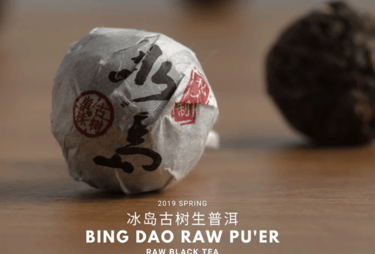

Green tea is widely known to be one of the healthiest beverages on the planet that could have many potential health benefits.
This Hojicha cultivated in Yabukita, Wazuka, is quite unique. Made by roasting summer Sencha instead of the traditional Bancha leaves. Amber Hojicha (琥珀のほうじ茶) reveals a much more intense firewood flavor, with a walnut aftertaste. Low in caffeine and easy on the stomach, it is a delicious nighttime tea.
Brew this roasted green tea using 3 grams of tea to 150ml of 85°C distilled water for 1 minute.
Green Tea
